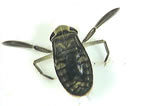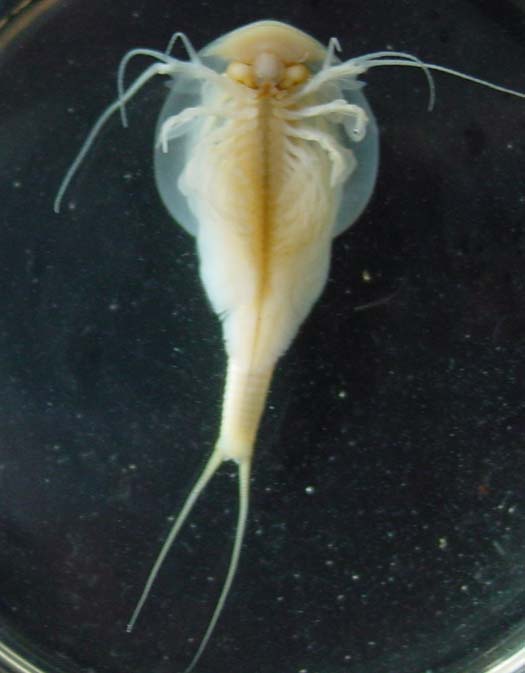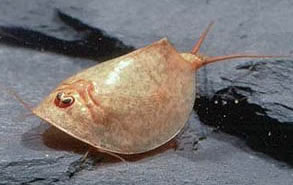
THE XERCES SOCIETY FOR INVERTEBRATE CONSERVATION Aquatic Invertebrates in Pacific Northwest Freshwater Wetlands |
| Identify taxa |
Notostraca (tadpole shrimp) |
The order Notostraca consists of a single family, with only two extant genera. The current morphology of Triops cancriformis dates back to the Triassic period, making it one of the oldest living animal species on Earth. Notostracans generally swim ventral-side-down, but in low oxygen environments they will swim upside-down with their appendages close to the surface of the water. They are omnivorous, digging around in mud with their carapace for plankton and other macro-invertebrate prey. The genus Triops can be quite damaging to rice paddy fields through extensive burrowing, which loosens young shoots. Nostracans have 2 compound eyes and between them is a naupliar eye (retained from the larval stage). This eye senses light and acts as a compass (it also gives the genus Triops its name, meaning "three eyes"). |
Size: large to xlarge Identifying feature(s): shield-like carapace; 2 tails Habitat: freshwater, brackish or saline temporary ponds, shallow lakes, peat bogs and moors. Tolerance to pollutants: |
 |
|
© 2007 Xerces Society
Contact info@xerces.org

